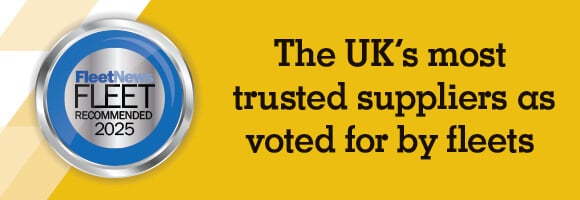The volume of cars being delivered through salary sacrifice schemes is up 47% year-on-year, new figures suggest.
That compared to a 7.1% increase for business contract hire (BCH), while personal contract hire (PCH) fell by 7.1% over the same period.
The data, published by the British Vehicle Rental and Leasing Association (BVRLA) in its latest Leasing Outlook report, illustrates how the right financial incentives can act as a catalyst for private driver demand for fully electric vehicles (EVs), with 84% of new sal/sac cars in Q4 being battery powered.
Toby Poston, BVRLA director of corporate affairs, said: “It is great to see the BVRLA member lease fleet growing, but this growing imbalance between the business and retail segments – particularly for EVs – is a real concern.
“Benefit-in-kind and salary sacrifice incentives have fast-tracked corporate uptake of electric vehicles and are underpinning our progress towards the ZEV Mandate targets.
“Fleet operators and business drivers cannot bear the weight of the EV transition alone, especially as the mandate targets ratchet up in future years. The spotlight must turn to the retail sector. It needs igniting.”
The strength of the fleet demand for new cars compared to weakening confidence in the retail market was illustrated by new sales figures published by the Society of Motor Manufacturers and Traders (SMMT) recently.
While the UK new car market clocked up its 20th consecutive month of growth in March, with a 10.4% rise in registrations, fleet and business registrations accounted for 60% of the market.
For business drivers, the supportive benefit-in-kind (BIK) tax regime for company cars, underpinned by the security of tax rates being published out to 2028, is ensuring that the lion's share of those new cars are electrified, according to the BVRLA leasing report.
It says that employers are benefiting from the advantages of both lower ‘fuel’ and national insurance costs, as well as the “feelgood, brand-enhancing wins of doing the right thing for the environment”.
As a result, 44% of all BCH cars delivered in Q4 2023 were battery electric, and a further 31% were plug-in hybrid, helping the average carbon dioxide emissions of new BCH models plunge to an all-time low of 55.3g/km in the quarter.
Without these tax and NI benefits, private drivers are finding it much more difficult to make the case for switching away from internal combustion engines, according to leasing executives.
The data underlines their point: 66% of new PCH contracts in the final quarter of 2023 were for petrol cars, and only 16% were for BEVs.
As a result, the average CO2 emissions of new PCH additions to the BVRLA lease fleet were 118.8g/km, more than twice as high as the BCH additions.
With lead times returning to pre-pandemic levels, the BVRLA leasing fleet is up 2.4% to 1.9 million vehicles. Both cars (1.9%) and vans (3.9%) have recorded year-on-year growth.
Dylan Setterfield, head of forecast strategy at Cap HPI, said: “The Government has many tools at its disposal to support BEV uptake and ensure the terms of the ZEV Mandate can be met.
“An obvious change would be harmonisation of VAT, where public charging costs can be reduced to make EV running costs cheaper for those without off-street parking.
“Other measures must be on the table too and include exemptions from tolls or discounted parking charges. In short, incentives are required. The annual increases set by the (ZEV) mandate only get steeper between now and 2030.”
Used electric vehicle market

In the absence of Government stimulus, the bruising decline in EV residual values for leasing companies in 2023 looks set to continue, according to the BVRLA.
“As their volumes of used EVs increases exponentially, several leasing companies are ruing their early success in persuading corporate customers to adopt the technology,” the report says.
“Fortunately, the continued strength of petrol and diesel residual values is offsetting disposal losses on zero-emission cars for the time being, but every leasing chief has a wish list of policies that the Government could introduce to stimulate demand for used EVs.
“Leasing companies are also ploughing significant investment into the development of second-life leasing products for used EVs, although uptake remains minimal.”
While the BVRLA Leasing Outlook highlights the huge uncertainty and financial risk created by an immature used EV market, there are some positive recent developments.
Rachael Jones, director of automotive finance at Auto Trader, said: “Encouragingly, we’re seeing robust levels of consumer demand in the market, particularly for used.
“In February used cars took an average of 27 days to sell, which was the fastest pace in 12 months, and in March, it’s fallen to just 25, the fastest we’ve ever recorded.”
One of the ways in which leasecos have looked to navigate volatile used values is through second-life leasing or extended contracts.
These methods are still in their infancy and, while used car agreements went up 3% from Q3 to Q4 2023, the average contract length for BCH agreements remains flat at 40 months.
A growing consideration instead is for managing asset finance risk through better vehicle management while on fleet, with concerns growing over repair times and costs, says the BVRLA.
Vincent St Claire, managing director of Fleet Assist, added: “A period of unprecedented change is being driven by the growing number of new OEMs coming to the UK.
“Vehicle leasing, rental and salary sacrifice providers will be operating a more diverse selection of new models than ever.
“Before operating new models, whether they are established OEMs or new entrants, it is critical that their aftersales networks are thoroughly reviewed.
“Network geographic coverage, booking lead times, and warranty terms will all vary, potentially impacting on customer service, operating costs and vehicle downtime.”
The full report includes analysis from Auto Trader, Cap HPI, and Fleet Assist. It can be read on the BVRLA website.





















Login to comment
Comments
No comments have been made yet.